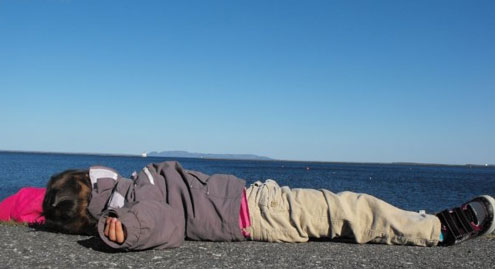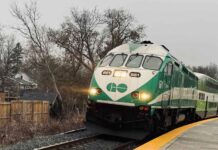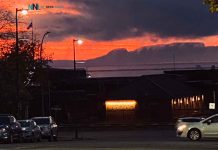 THUNDER BAY – A study by Environics Institute on Thunder Bay results of the Urban Aboriginal Peoples’ Study (UAPS) states that “Aboriginal peoples move to Thunder Bay primarily for education, family reasons and work opportunities, reasons that are largely shared by Aboriginal peoples in all 11 UAPS cities. However, education emerges as a greater consideration for Aboriginal peoples to set up residence in Thunder Bay”.
THUNDER BAY – A study by Environics Institute on Thunder Bay results of the Urban Aboriginal Peoples’ Study (UAPS) states that “Aboriginal peoples move to Thunder Bay primarily for education, family reasons and work opportunities, reasons that are largely shared by Aboriginal peoples in all 11 UAPS cities. However, education emerges as a greater consideration for Aboriginal peoples to set up residence in Thunder Bay”.
Aboriginal Education fuels in-migration
The report says, “According to the 2006 Census, Thunder Bay has the second smallest Aboriginal population of the UAPS cities (only Halifax has fewer Aboriginal residents). Yet Aboriginal peoples account for eight percent of the total population of Thunder Bay, a proportion that is exceeded only by the per capita populations in Winnipeg (10%), Saskatoon (9%) and Regina (9%).”
With a stated goal that “This study is about the future, not the past”, the report offers several very interesting points worth noting.
From 2001 to 2006, the Aboriginal population in Thunder Bay grew by 23 percent, a noticeably slower rate than that reported for Montreal, Ottawa and Halifax, but much faster than that found for Saskatoon, Regina and Vancouver. The rate of growth was somewhat greater for Métis (32%) than for the First Nations population (22%).
The Aboriginal population living in Thunder Bay is much younger than the non-Aboriginal population (with a median age of 26 years, compared to 43 years for the non-Aboriginal population), which is consistent with the pattern observed Canada-wide.
Sadly, there is a very strong perception among Aboriginal peoples in Thunder Bay that non-Aboriginal people hold a wide range of negative and distorting stereotypes about them, the most prominent being about alcohol and drug abuse. Although a minority believe that these attitudes may be changing for the better, the balance of opinion is that they remain unchanged. Most Aboriginal peoples in Thunder Bay agree that others behave in an unfair or negative way towards Aboriginal people. A majority say they have personally been teased or insulted because of their Aboriginal background, on par with the experiences of Aboriginal peoples in other UAPS cities. At the same time, Aboriginal peoples in Thunder Bay are more likely than not to feel accepted by non-Aboriginal people.
Most UAPS participants feel discrimination of Aboriginal peoples is a pervasive problem that majorities have experienced personally. This is similarly true for Aboriginal peoples in Thunder Bay, who believe substance abuse is the dominant stereotype about the Aboriginal population. The view that there has been little change in non-Aboriginal attitudes over the past few years is more widespread than average for the UAPS cities, with only a minority who are optimistic that perceptions of Aboriginal peoples are improving. Moreover, as in other UAPS cities, a substantial minority of almost four in ten say they do not feel accepted by non-Aboriginal people.
In Thunder Bay, the view that perceptions of Aboriginal people have not changed in recent years outweighs the belief that they are improving, while only a small minority think perceptions have deteriorated. When asked about the change in non-Aboriginal people’s impression of Aboriginal people over the past few years, about half (47%) of Aboriginal peoples in Thunder Bay think impressions have stayed the same. One-third (33%) think impressions have become better. Only 17 percent believe non-Aboriginal people’s impressions of Aboriginal people has gotten worse over the past few years.
Aboriginal peoples in Thunder Bay are more likely than average to perceive no change in non-Aboriginal people’s impressions; by comparison, optimism that attitudes are improving is strongest in Vancouver (53%) and Toronto (48%). In Thunder Bay, Métis and First Nations peoples hold similar perceptions about this issue.
The complete study is online at www.uaps.ca






